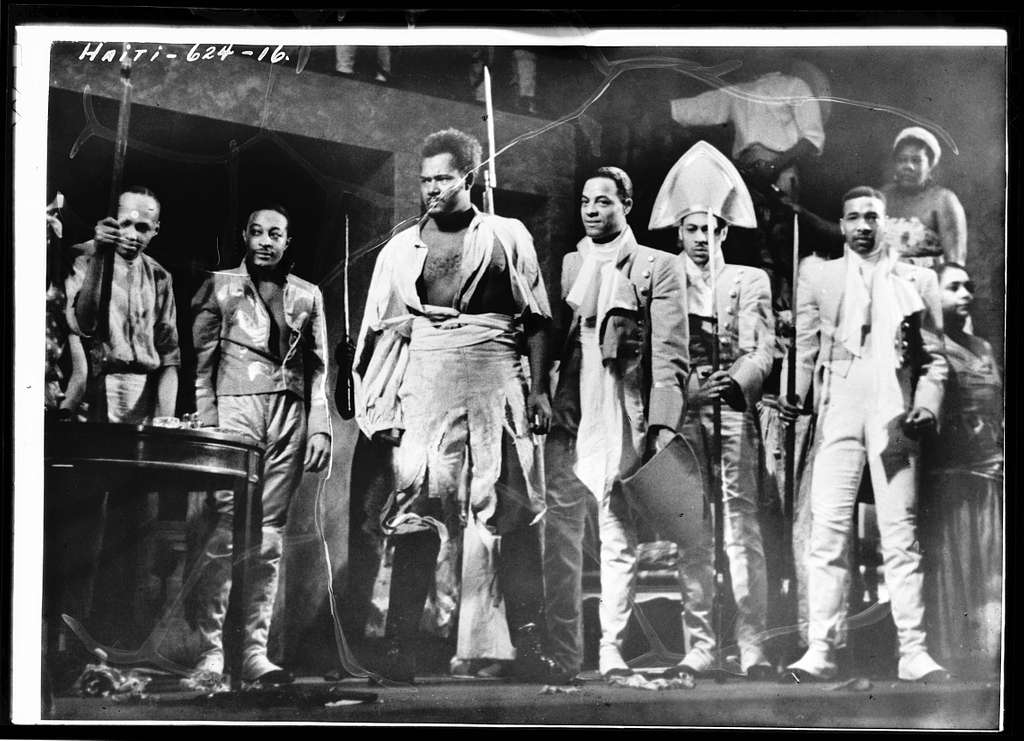Caribbean Theater Series – Part 2: Countries that Pioneered Theater

In Part 1 of this Caribbean Theater series, we examined how the region’s rich history, cultural diversity, and artistic traditions have shaped Caribbean theater into a dynamic platform for storytelling. Through these performances, Caribbean theater became a means to honor and share the complex experiences and vibrant spirit of the region. In the upcoming parts of this series, we will delve into the complex issues surrounding funding for theater in the Caribbean. We’ll also explore innovative ways future generations can embrace and enhance the region’s rich theatrical traditions. But first, it’s essential to highlight the Caribbean countries renowned for their significant contributions to theater—those islands that have cultivated vibrant local industries.
Here are some of the most notable Caribbean countries that pioneered theater.
Jamaica
Jamaica is a major player in the Caribbean theater scene, known for its rich tradition of storytelling, drama, and comedy. The country’s theatrical legacy was shaped by prominent figures like Louise Bennett-Coverley (“Miss Lou”), who championed the use of Patois in theater, and playwright Trevor Rhone, co-writer of The Harder They Come. Jamaica’s National Dance Theatre Company and the Little Theatre Movement also play pivotal roles in supporting and developing the arts. In fact, it was during this period (1940s) the famous Pantomime plays emerged.
Read more about the history of Jamaican Theater.
Trinidad and Tobago
I often reference Trinidad and Tobago theater because I am deeply familiar with it, having been born and raised in these twin islands. The theater tradition here is rich and rooted in our multicultural history. A historically key player has been the annual Trinidad Theatre Workshop, co-founded by Nobel Laureate Derek Walcott in 1959, which has significantly shaped both local and international theater. Additionally, Carnival heavily influences our performance art, blending music, dance, and theater to create a vibrant theatrical tradition that attracts immense participation from both locals and visitors alike.
Read more about the Theater of Trinidad Carnival here.
Cuba
Cuba has a long history of theater, blending European traditions with Afro-Cuban influences. The country’s theater scene thrives with institutions like the National Theater of Havana (Teatro Nacional) and various independent groups. Teatro Buendía is one of Cuba’s most celebrated and prominent experimental theater companies, internationally recognized for its powerful performances that tackle political and social issues.
Both institutions, while rooted in historical contributions, maintain their relevance, although the level of support and international exposure varies.
FUN FACT
Twelve Caribbean islands came together in 1997 and formed the Caribbean Regional Alliance (CARA) which is the regional representative body to the International Amateur Theatre Association (IATA).
Haiti
Haitian theater, deeply rooted in the country’s traditions of storytelling and cultural practices, thrived with voices such as poet, playwright, novelist, painter and actor — Frankétienne, leading its socially and politically charged narratives. In earlier decades, Haitian theater was a crucial outlet for addressing themes of oppression, national identity, and resistance.
However, Haiti’s theater scene has faced devastating challenges due to political instability and natural disasters, especially the 2010 earthquake, which significantly disrupted the country’s cultural infrastructure. Today, while efforts to revive theater are ongoing, the scale of productions and resources have dwindled, with many practitioners struggling to rebuild spaces and keep the art form alive amidst broader national recovery efforts.
Learn more about Haiti’s Cultural Recovery Project here.
The Bahamas
The Bahamian theater scene has grown significantly, with organizations like the Dundas Centre for the Performing Arts— Nassaus only community theater. On February 19, 1942, “The Ghost Train” premiered at the Dundas Civic Centre, under the patronage of the Duchess of Windsor. Proceeds supported the Bahamas Red Cross and Our Boys Fund. The cast was mainly white Bahamians, marking a significant moment in local theater. This production led to the formation of the Nassau Little Theatre, a key amateur group. Over the years, Bahamian talent has flourished, gaining notable acclaim and recognition. Ringplay Productions was also integral to the development of local talent. The country’s theater often reflects its African and British colonial heritage, and productions range from light comedies to serious dramas and social commentaries.
Conclusion:
The Caribbean region is bursting with untapped potential in the Performing Arts. We’ve explored the unique theater histories of just a few of these Caribbean nations and I note that there is so much more to be said about each of them. What is clear? — each country contributes its own colourful piece to the mosaic of regional Arts. As we move forward in this series, we’ll address the challenges facing these theater communities, whether or not innovative solutions are emerging, and the ways future generations can continue to nurture this artistic legacy.
References and further reading: International Amateur Theatre Association Brief History of Theatre Arts Teatro Buendía Dundas Centre
Editor's Note: At StageLync, an international platform for the performing arts, we celebrate the diversity of our writers' backgrounds. We recognize and support their choice to use either American or British English in their articles, respecting their individual preferences and origins. This policy allows us to embrace a wide range of linguistic expressions, enriching our content and reflecting the global nature of our community.
🎧 Join us on the StageLync Podcast for inspiring stories from the world of performing arts! Tune in to hear from the creative minds who bring magic to life, both onstage and behind the scenes. 🎙️ 👉 Listen now!
